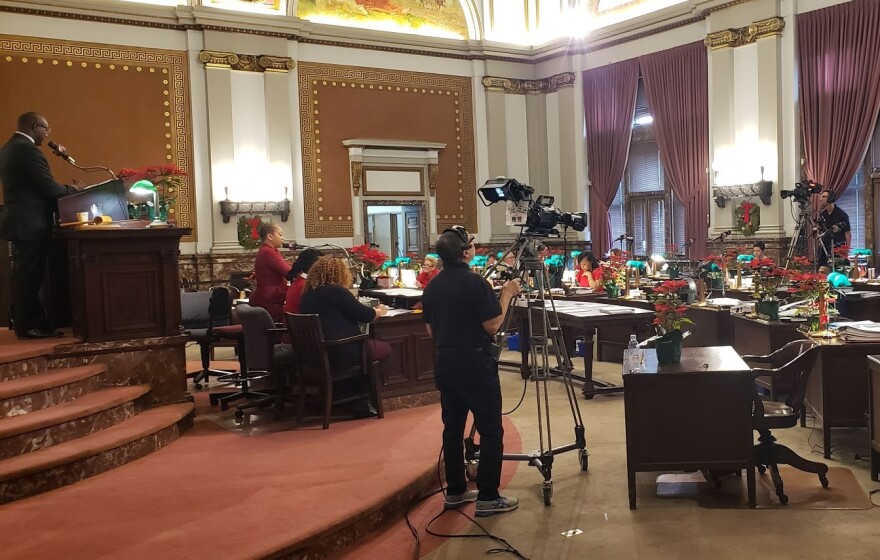A major change to how wards are drawn in the city of St. Louis will go in front of voters Tuesday.
Proposition R would move responsibility for redistricting from aldermen to a citizen commission. Aldermen would have input on the members of the commission and could make suggestions on the maps the commission produces.
“People should be able to pick their representatives, and not the other way around,” said Jami Cox, the policy chair of Reform St. Louis, the main backers of Proposition R. “Even though there are typically not major changes made every 10 years, the principle of this is what matters the most, and we think that practice should be in the hands of St. Louis citizens and constituents.”
The measure also strengthens the board’s conflict of interest policy and makes the aldermen’s financial disclosure forms public.
Though the language in the proposal says the commission would draw the maps for the 2023 elections, supporters of Prop R said in December they would not “push for a rushed enforcement” of the redistricting provisions. Cox said she did not think the delay would dissuade people from voting.
“This policy is about creating a better future for St. Louis,” she said.
Aldermen approved a new map, the first with 14 wards, late last year.
Show Me Integrity, the group behind Reform St. Louis, also led the effort to pass Proposition D, which instituted nonpartisan approval voting for mayoral and most aldermanic elections. While that measure passed with no organized opposition, a group calling itself Vote No on Prop R has raised $1,300 to combat the current proposal.
“It’s neighbor to neighbor, word, you know, word of mouth, going to neighborhood meetings reaching out to our friends,” its treasurer, Emily Cullins, said of the ongoing campaign.
The group can get behind the ethics changes, Cullins said. But members worry that the structure of the citizens commission makes it difficult for Black residents to be appointed. And she said it takes away too much power from the aldermen.
“They are our direct representatives who balance out the executive branch,” she said. “We elect them to draw the maps. Not all city voters would be involved in selecting the commission.”
Although the group calls itself bipartisan, campaign finance records show the vast majority of its funding has come from the city’s Republican Party and local GOP activists. Show Me Integrity's committee has gotten most of its funding from the Center for Election Science, a California-based nonprofit that focused on implementing approval voting across the country.
Passage of Prop R requires a vote of 60%.Infrastructure borrowing
Voters will also decide whether to allow the city to borrow up to $50 million to support capital needs, such as street paving, repairs to firehouses and city recreation centers, and a new centralized 911 system.
St. Louis is seeing an influx of money for capital spending. Aldermen are on tap to approve nearly $70 million in American Rescue Plan Act funding, and will receive a still-undetermined amount from the federal infrastructure bill. The bonds are meant to put the city in a position to best use those federal funds.
At a December committee hearing on the bill, Rebecca Perry-Glickstein, a financial adviser to the city, reminded aldermen that many federal infrastructure grants require a local match that cannot be made with ARPA money.
“We need to have those funds on hand to make that match,” she said, adding that there are some projects that may not be eligible for federal funding.
The bonds will be sold at a later date, and paying them off will not require a tax increase. The measure requires a two-thirds majority to pass.
Follow Rachel on Twitter: @rlippmann




